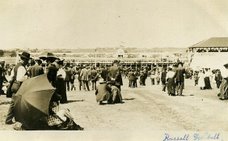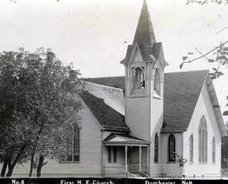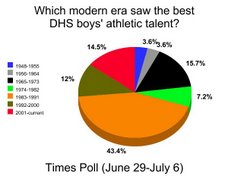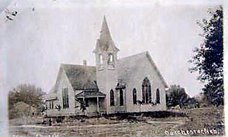 It's hard to believe that Dorchester's Farmers Cooperative was once just another small grain elevator on a line of the Burlington Rail Road.
It's hard to believe that Dorchester's Farmers Cooperative was once just another small grain elevator on a line of the Burlington Rail Road.The Times has learned that Farmers Cooperative -- which has blossomed into a full service organization with products and services offered in energy, grain, feed, and agronomy -- is about to get a little bigger.
Beattie Farmers Union Cooperative of Beattie, Kansas, saw its stockholders vote last week to merge with Farmers' Cooperative. While headquartered in Dorchester, Farmers Cooperative now owns more than 50 other facilities in eastern and central Nebraska, as well as northern Kansas.
At last check, Farmers Cooperative was one of nine Nebraska cooperatives that were ranked among the 100 largest in the country, according to a report by National Cooperative Bank. Last fall, the NCB list ranked Dorchester-based Farmers Cooperative at No. 75 based on revenue in 2014. It is the fourth largest ag-based co-op in Nebraska, just behind Aurora Co-op.
A story in the Marysville (Kansas) Advocate reports on the latest merger.
“I think it’s a pretty positive thing,” said Ron Velder, Farmers Cooperative CEO. Velder said the turnout likely reflected concern among stockholders about the farm economy, currently mired in low commodity prices.
A total 464 votes were cast, with 78 percent in favor, said Luin Berger, chairman of the Beattie Co-op board of directors.
Moving Beattie Co-op into the Farmers Co-op fold will give area farmers access to better services and improved facilities, Berger said.
“Hopefully we’ll improve services and get an agronomist out here to help farmers on crop input costs, chemicals, seed and variable planting rates,” Berger said. “Those are people we desperately need.”


















































Having the Coop is huge for a town the size of Dorchester. However, bigger isn't always better. Before they grew so large, they were always paying around 5 cents less than Crete Mills, which is about 10 miles away. However, since they put in their rail car siding and grown larger, that difference has increased. A check today shows they are 14 cents less than Crete and for new crop corn, they are paying 15 cents less. This means our corn is going to Crete, but if you do not have storage, you are stuck with Coop, where they will charge you storage and pay you less for your grain. The Coop has lowered input costs, now they just need to be more competitive in what they pay for the grain they buy.
ReplyDelete